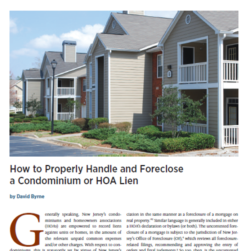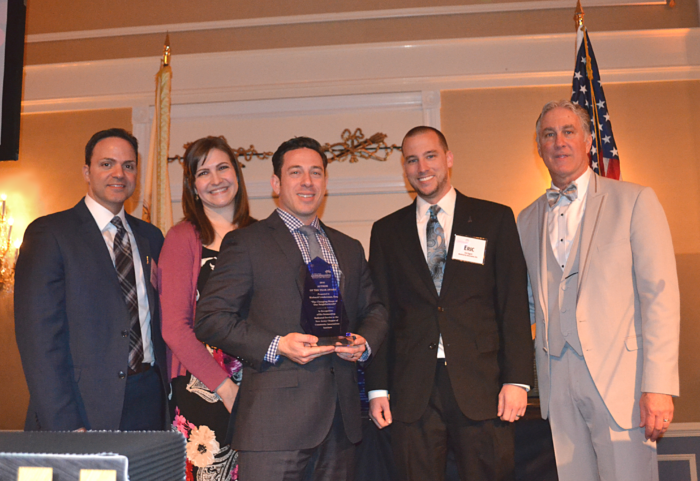New Jersey Supreme Court Affirms Condominium’s Ability to Limit Alleged “Emotional Support Animals,” Clarifying the Process To Be Used For ESA Accommodations
On Wednesday, March 13th, New Jersey’s Supreme Court released its long-awaited decision in the Players Place II Condominium Association v. K.P. case. In 2018, a resident claiming to be disabled for New Jersey’s Law Against Discrimination (“LAD”) adopted a dog that would ultimately weigh almost 65 lbs. despite Players Place II’s rule prohibiting dogs weighing more than 30 lbs. The association rejected the request, concluding that the resident did not need accommodation because she could have adopted a dog that weighed less than 30 lbs. (in which case, issues connected with disability and LAD would have been irrelevant). Further, the association concluded that the resident was neither “disabled” for the purposes of LAD nor was this particular 60+ lb. dog necessary to afford her equal use and enjoyment of her unit. The association prevailed at trial concerning LAD, establishing that its 30 lb. weight limit rule was reasonable and that the resident was not disabled for LAD. The association also prevailed on appeal, with the appellate court concluding that while the resident may be disabled, the particular dog in question was not necessary to afford the resident’s equal use and enjoyment of her unit.
The New Jersey Supreme Court decision focused on two (2) things. First, it clarified for everyone going forward how emotional support animal requests made by residents claiming to be disabled must be handled by both the resident and the housing provider (whether a condominium, apartment complex or otherwise). If possible, the parties should engage in a good-faith collaborative discussion before the actual adoption of the animal in question. The court set forth how LAD should be applied in these situations, what the resident must demonstrate, and what the housing provider must demonstrate. The court interpreted the relevant parts of the LAD so that relevant words, such as “disability,” are more easily understood. The court ruled that an ESA doesn’t necessarily need to have been “prescribed” by a health care professional. The court articulated the factors a housing provider must consider when deciding whether a request can be reasonably accommodated.
Second, the Supreme Court focused on the particular facts of the dispute between Players Place II and K.P. More specifically, whether an association must always grant the accommodation request of one claiming to be disabled, how the LAD must be applied in the face of an accommodation request, and whether Players Place II’s rejection of this resident’s request constituted a violation of LAD. In this regard, the Supreme Court agreed with Players Place II that the resident bears the overall burden of proof. The resident must prove that she is, in fact, disabled as “disabled” as defined by LAD and that the accommodation desired is necessary to alleviate at least one (1) symptom of the resident’s disability. Only then must an association establish that the request cannot be reasonably accommodated. The Supreme Court concluded that the association and the resident should proceed back to the original court where another trial should take place, a trial that decides whether this resident needs this particular animal to afford equal use and enjoyment of her unit and, if so, whether Players Place II can reasonably accommodate the animal.
Ultimately, the New Jersey Supreme Court’s decision should help New Jersey’s association better understand the law and how to apply it when faced with an ESA request. The decision also confirmed that associations, depending upon the circumstance, may very well have the right to reject an ESA request. Lastly, the Supreme Court’s decision leaves open, to be decided at a 2nd trial, whether it can deny this accommodation request without violating the LAD.
Department Chair David Byrne discusses the case with Law360 (subscription required) and Bloomberg Law.
All condo and co-op boards in New Jersey should consult with experienced community association counsel to ensure compliance. If you have questions or concerns, please contact David Byrne or one of the attorneys in our Community Association Law practice group.



